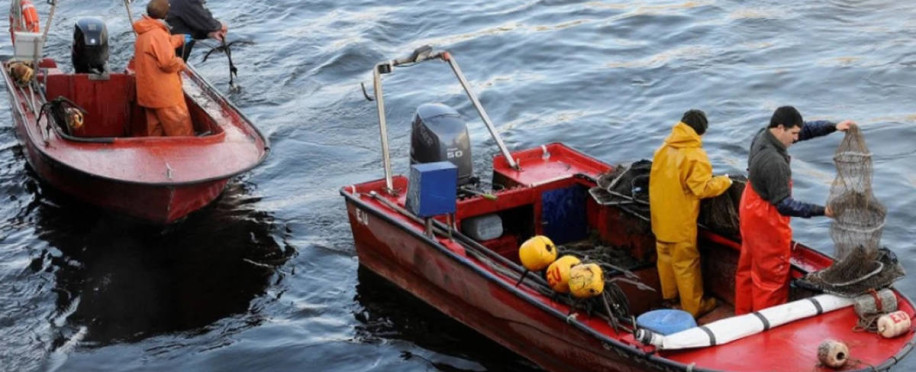Copyright © 2025 lmitac.com All Rights Reserved. Contact - Terms and Conditions - Privacy Policy - Quality Policy - Become an instructor - Vacancies - Sitemap
London Maritime Academy is a trade name for London Premier Groupversion: 2.9.0
London Maritime Academy is a trade name for London Premier Group

Posted on : 9/25/2023, 12:52:36 AM
Last Update : 9/25/2023, 1:00:27 AM
The economic impacts of oil spills have transcended beyond just ecological ones — the price tag on a single major oil spill could affect a nation’s entire economy, not to mention its tourist industry. Most of the small oil spills could be managed with minor harm to the environment, but a single large oil leak can lead to severely catastrophic consequences..
In this article, we'll explore the negative impacts of oil spills, the financial liabilities and how we can evade any losses that happen in the event of an oil spillage
The overall economic impacts of oil spills extend far and deep (and have profound ramifications for local tourism, fishing, and fishery economies).
The direct economic effects of oil spills can include:
The physical cleanup effort
Legal fees and settlements, fines
Increased insurance premiums
Decreased livelihoods of workers and wildlife alike
Destroyed businesses and revenue losses of communities rendered inoperative during the storm (coastal fisheries and other industries located at the beach)
Indirect effects are far more challenging to estimate but can also play an important role, including:
Decrease of public support for offshore energy exploration and production.
Harm to the environment, including impact on marine living systems along shorelines.
Cultural identity is destroyed by flooding heritage sites such as beaches, coral reefs, and agricultural lands.
Loss of wildlife activity due to the destruction of natural habitats.
The primary purpose of mitigation strategies is reducing the consequences of an oil spill — they prevent it if possible and clean up as soon as possible should it happen. Some of these repercussions include:

It’s important for the government to establish necessary regulations, such as maintenance of ships and training of crews to avoid the worst situations of oil spills through Oil Spill crises Management training courses.
International Maritime Organization standards were developed for crew training and ship building, but countries can implement these differently.
Countries prone to oil spills should develop and implement spill response plans. Plans need to be prepared for managing different accidents such as fires or collisions.
There is scope for better tanker design to avoid repeating the damage caused by the Exxon Valdez spill. Tankers can be made more resistant to punctures in various ways, such as by filling them with more buoyancy tanks, or by reinforcing hull panels.
Ports and terminals have a great impact on the safety of ships, therefore, before embarking on long journeys, ships must be inspected more often by port authorities. Should any vessel be deemed unfit for sailing, it should only be permitted to depart from the anchor once all corrections have been made and a guarantee of safety is offered.
Transportation of oil using double-hull tankers rather than single-hull vessels; these double-hulled tankers have two layers of reinforced steel that surround the oil. It minimises the likelihood of oil spilling onto land or sea through ruptures resulting from external forces such as collisions with other vessels or grounding events, with damage caused by an external force alone.
The BP Deepwater Horizon oil spill, is the largest accidental marine oil spill in the history of the petroleum sector.
The accident occurred when an explosion destroyed the Deepwater Horizon drilling rig, located in the Gulf of Mexico off the coast of Louisiana.
The resulting spillage released a total of approximately 205.8 million gallons of crude oil into the Gulf over a period of nearly three months. One report estimates that the spill caused the release of 225,000 tons of natural gas from the wellhead into the ocean floor.
The effects of this disaster have been far-reaching. The damages to marine life has been particularly severe: many fish species are not expected to recover for decades if ever; red snapper populations were virtually wiped out by this event; oyster reefs were decimated; dolphins were found dead due to respiratory failure; and many other species were greatly disturbed by this environmental catastrophe.
In addition to its negative impacts this pollution had on wildlife and ecosystems, there are also economic costs associated with such events which include lost tourism revenue and lost seafood sales due to contamination from oil residue along with increased costs for cleanup efforts
The economic impacts of oil spills are long-lasting, and widespread effects and can be devastating. These leaks have terrible health results for local environments, wildlife and those whose livelihoods rely upon them. That's why every company should prepare well and prevent any potential disasters from happening ever again.